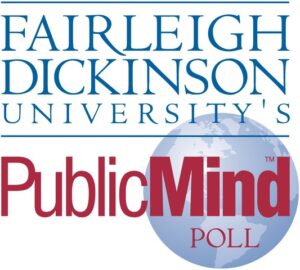
As the lines are drawn in the battle for online gambling regulation in the United States, both sides constantly rally support. Casinos, politicians and wealthy businessmen – all with their own agendas – often push out surveys to find a slice of the population that agree with their views.
Though often skewed, those surveys show the divisive nature of the topic among Americans. Even with the support regulation has had in the gambling community, a recent survey proves it still has a lot of fighting to do before nationwide acceptance.
Pot over Poker
In a poll of over 1,100 adults, Fairleigh Dickinson University’s Public Mind survey found that Americans prefer the legalization of marijuana (52 percent) over online gambling (20 percent). Only 4 percent of the respondents favored the legalization of both, with 18 percent preferring neither becoming legal.
Additionally, Fairleigh Dickinson University’s (FDU) survey looked at trend data dating back to 2010 on how attitudes have changed for online gambling legalization. 1,151 adults aged 18 and older were polled using landline and cell phones from April 21 through April 27, 2010. The margin of error was 2.9 percent.
Meager Change
When analyzing data from 2010, before any kind of betting was legal in the United States, FDU realized the numbers were only slightly different. In 2010, 67 percent of people opposed changing the law to allow online betting, with 21 percent in support. 2012 narrowed the gap with 60 percent opposing allowing states to run online gambling, with 27 percent in favor of it.
Only Nevada, New Jersey and Delaware have entered the online gambling market so far, even if other states are expressing interest in doing so. That being sad, the survey found that 65 percent of Americans aren’t following the issue very closely. Even with that information, 63 percent opposed allowing casinos to run online gambling for people in their states, with only 27 percent approving. Gender wasn’t necessarily a factor, either. 56 percent of men opposed online gambling, with 34 percent in support. Those figures weren’t as close with women, who had a margin of 69/20 percent.
“More and more states may be considering it, but the public doesn’t seem to be buying it,” said Dr. Krista Jenkins, director of Public Mind and FDU’s professor of political science. “Right now, online gambling looks to be a long shot in the court of public opinion.”
Higher Support for Marijuana
Comparing online gambling to the hot-button issue of marijuana legalization yields vastly different results. 86 percent of Americans say they know something about legalization, with 58 percent of those saying they know a lot about the issue. This is supported by the fact that 50 percent of those surveyed favor the legalization of small quantities of marijuana for recreational use, with 44 percent opposing it.
Unlike online gambling, however, marijuana legalization is a much less divisive topic among Americans. As expected, political affiliation has a great bearing on opinion. 63 percent of Democrats favor legalization over the 32 percent of Republicans, with independents coming in at 58 percent. Though men favored marijuana legalization by a margin of 54/41 percent, 48 percent of women were opposed, compared to 47 percent finding it favorable.
Age was a definite factor in the preference for marijuana legalization. 18-29 year olds supported it 65 percent, and those aged 30-44 favored it 56 percent. Only 36 percent of those aged 60 or older favored marijuana legalization.
Though the survey isn’t the last we will hear about online gambling and public opinion, it was plain to see that regardless of age, gender or political affiliation, marijuana legalization was simply more of a known topic. But FDU’s efforts did lack the common bias seen with surveys taken by other groups which have a tendency to poll those who support their individual cause.


